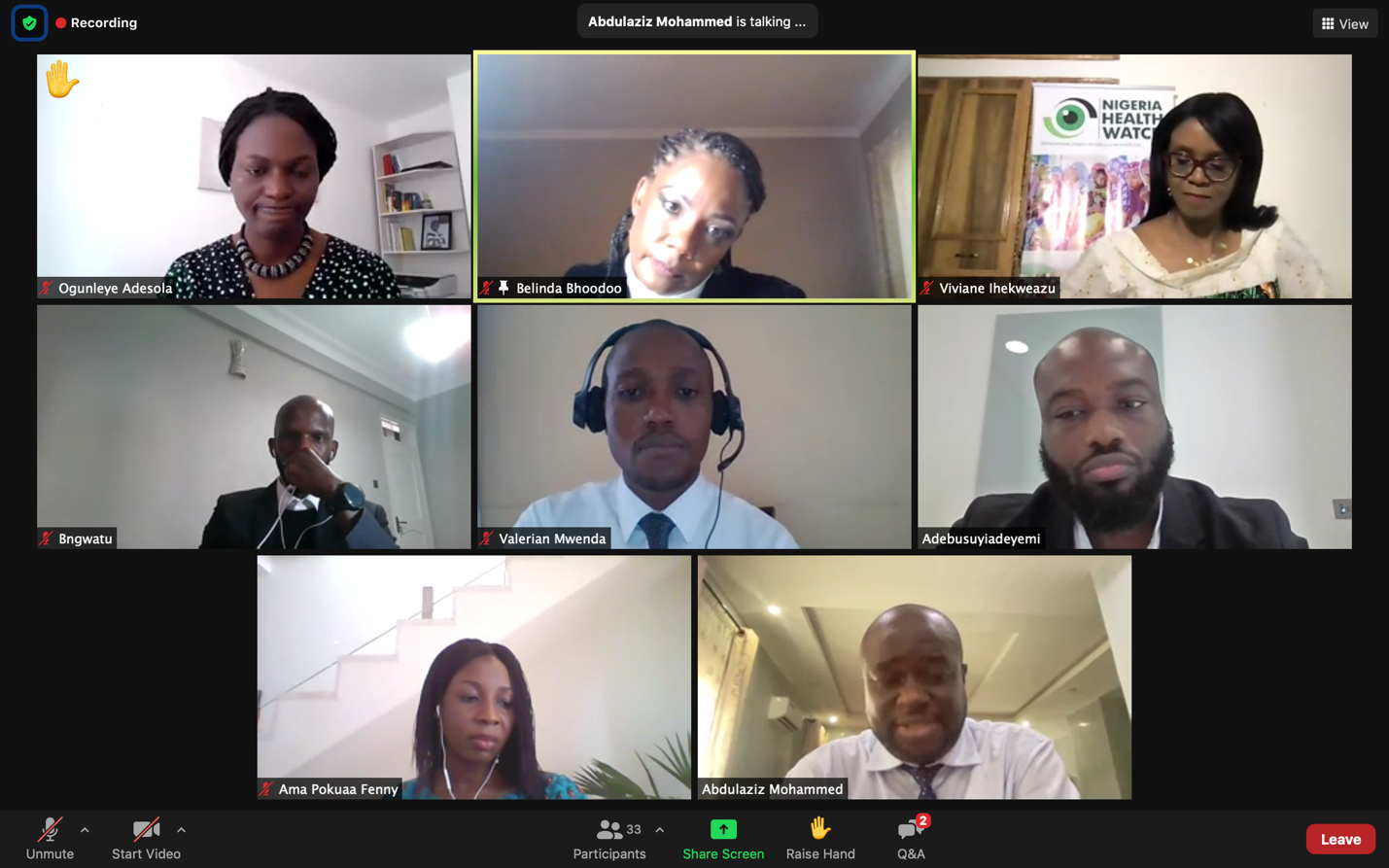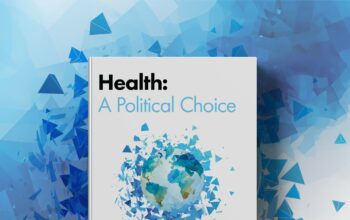Enabling the next generation of African Health Leaders for the road ahead
At this year’s regional World Health Summit in Uganda, we had the pleasure of showcasing the research fellows that IFPMA has been supporting as part of the Chatham House African Public Health Leaders fellowship program since 2016 in an event titled “Will COVID-19 dictate a new paradigm in Africa?” This event was a unique opportunity to get a ‘temperature check’ from public health leaders on the ground about the pandemic’s potential to transform the future of health in Africa. Six fellows, who hold key positions in national disease control programs, universities and the media, provided valuable insights into how the current pandemic will impact the future of Africa’s health systems, based on experiences from their countries and areas of work.
Key takeaways from the event
- Home-grown research and data collection is needed to ensure evidence-based prioritization of the most pressing health challenges.
- Self-reliance and finding African solutions for African problems is key.
- Political will must drive investment in public health and health security.
- Leadership at a continental level, including by the African Union and Africa Centers for Disease Control and Prevention (CDC), is necessary to coordinate the response to present and future pandemics.
- All public health challenges, such as noncommunicable disease (NCD) control and the fight against antimicrobial resistance (AMR), require consideration.
Hearing from African rising stars in public health
While the COVID-19 pandemic is far from over and continues to take a heavy toll, history has shown us that out of great calamities, great successes can arise. However, for this to happen, it is important to prioritize the most pressing health challenges, and this can only be achieved by linking local realities to the wider African picture through home-grown research and data collection. This includes setting up the right structures and networks to enable messages to get through from all parts of society, including marginalized, vulnerable and front-line community voices.
From a macro perspective, the pandemic has clearly shown us that we need to rethink our public health order. For Abdulaziz Mohammed, Head of Disease Control and Prevention at Africa CDC, the continent needs to give more attention to health, including through strengthening of national public health institutions, development of health workforce and respectful partnerships with development partners. Regarding a step-up of financial commitments, it will be important to strike while the iron is hot. As highlighted by Vivianne Ihekweazu, Managing Director at Nigeria Health Watch, historically African countries have not dedicated sufficient share of their budgets on health, despite the 15% pledged in the Abuja Declaration, which was agreed in 2001 and aimed to strengthen Africa’s health systems and ensure their preparedness for disease outbreaks. That is why a paradigm shift needs to occur whereby increasing health budgets should be seen not as a cost but as an investment. Ama Pokuaa Fenny, Senior Research Fellow at University of Ghana Legon, noted how COVID-19 has tested Universal Health Care and the value of leaving no one behind. It also is important to remember that investing in health systems makes sense not only from an inclusion and pandemic preparedness point of view, but also from an economic growth and resilience perspective.
Importantly, and to be better prepared for the next crisis, there is a strong need for local African manufacturing of therapeutics, vaccines and diagnostics. As mentioned in my previous blog on expanding manufacturing in Africa, this will be a marathon and not a sprint, and goes hand in hand with other important steps, such as creating a regulatory environment that encourages investments, developing technical skills locally and focusing on manufacturing capacity at the African level.
Reshaping health frameworks requires a sustained effort that encompasses all key health challenges. For example, as mentioned by Brian Kermu Ngwatu, Infectious Disease Specialist and Senior Clinical Advisor at the Clinton Health Access Initiative’s Clinical Sciences Team, COVID-19 has compromised sustained investment in research and the multifaceted fight against AMR. That is why it is important to ensure a true health mind shift, not just a temporary focus of attention and resources. For Valerian Mwenda, Medical Epidemiologist at the National Cancer Control Program in Kenya, healthcare is not only a scientific construct but a social one too. Changing the paradigm is about doctors, drugs and vaccines, and equally about a behavioral change, and this takes time to achieve.
Young African public health leaders hold the promise of a better future
While there is much work to do and there is a long road ahead, I see that there is also a lot of hope for the future after listening to the Chatham House Africa Public Health Leaders fellows. The new public health generation has experienced a unique global health emergency and knows well the obstacles that must be overcome. This generation is more educated, connected and international than ever before. It is also eager to contribute creative new ideas to the global health conversation.
With regards to the question “Will COVID-19 dictate a new paradigm in Africa?”, I believe the answer is a clear “yes.” A key step will be having strong leadership from the next generation of public health leaders in Africa. That is why it is so important to build the capacities of promising public health specialists on the ground and to enable their full potential through programs like the African Public Health Leaders fellowship.
We are still at the beginning, but there are some positive signals in Africa, such as the recently announced collaboration between Johnson & Johnson, Aspen, the World Bank and government agencies to produce COVID-19 vaccines in South Africa. Furthermore, we welcome progress on the common vision and strategy of the African Medicines Agency, which will serve as a key institution helping to strengthen healthcare systems in Africa. Despite the pandemic and other looming health crises, hearing from the six fellows gives me hope for the future and reason to believe the next generation is ready to face the challenges ahead. As Adesola Yinka-Ogunleye, Epidemiologist the Nigerian Centre for Disease Control, said, the COVID-19 pandemic has dictated the need for a new health paradigm not only for Africa but for the world, and there will be lessons to be learned for all of us along the way.

Author






